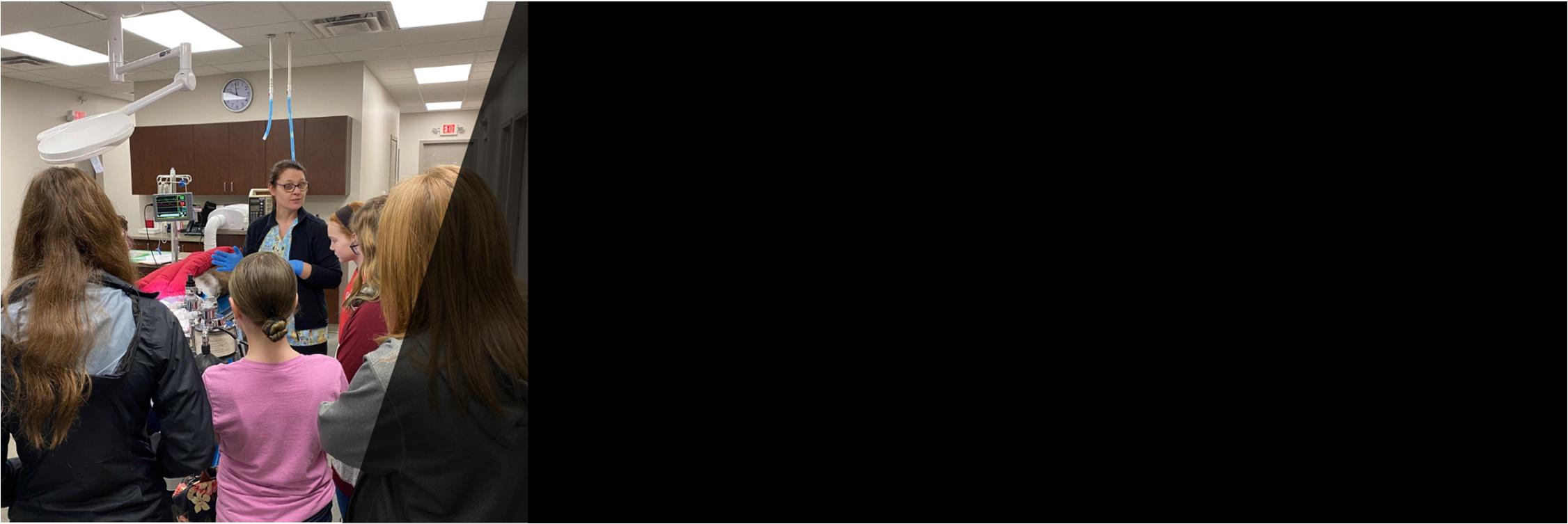
1 minute read
4-H Youth Development Success Story Experience Vet Science
4-H SPARK Club
Youth Explore Vet Science Career Paths through Hands-on Experiences with Local Businesses
Advertisement

According to the American Veterinary Medical Association, today's veterinarians are the only doctors educated to protect the health of both animals and people. Veterinarians also play critical roles in environmental protection, research, food safety, and public health. A great deal of skill and knowledge is needed to enter professions in veterinary medicine. 4-H Youth Development can address this issue by kindling interest in veterinary medicine through hands-on experiences in our program. These experiences will spark youth's interest in fulfilling the requirements of a career in veterinary medicine.
Extension Educators collaborated with a handful of businesses and schools within our community to create a day-long (8 hour) experience that provided 17 participants with a behind the scenes look of a variety of careers in veterinary medicine. The day began with a tour of a local veterinary office and an interview with a practicing vet and vet technician. Participants were able to watch a dental procedure during this tour.
We then toured Ivy Tech Madison's campus and used a 3-D printer to create skeleton teaching tools of small rodents. This was followed by a brief anatomy lecture from a Biology Professor exploring a third career field. We had lunch at Hanover College and toured their science center in the afternoon. Lastly, participants returned to the fairgrounds. Extension Educators led the last session on animal biosecurity, providing a look into a 4th career path related to animal science. Participants enjoyed an action packed day and gained a variety of experiences all related to the same career field.
Looking Forward
We plan to repeat this program this spring. Contact educators if you are interested in this program.
Thank you to these partners


Southwestern School Corp.
Impact
4-H Common Measures 2.0: Animal Science: Life Skills and Professional Development was administered to collect impact.
We had 17 youth complete the program.
Youth were asked about animal science career aspirations. On a 3-point scale, youth reported they would be most interested in a career raising animals (2.88) or caring for animals (2.88).
Youth reported about learning 21st Century skills. Highest average scores, on a 3-point scale were: they value taking care of something other than themselves (3.00) they met new people because of their animal science project (3.00), and they learned how to set goals for a successful animal science project (2.94).
Half of the youth (50.0%) indicated that this was their first 4-H activity.








